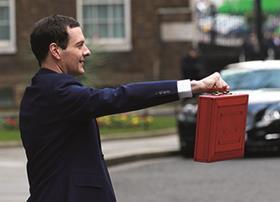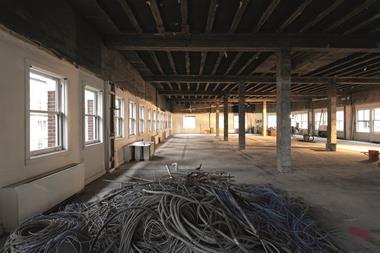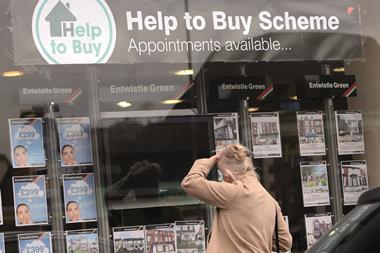The government is due to publish its findings imminently into the long-term future of business rates, having said it wants the system to be “fit for a modern, dynamic, 21st-century economy” (‘Mixed bag of business rates reforms included in Budget’, PropertyWeek.com, 16.03.16).

On the face of it, last week’s Budget made welcome moves in this direction. George Osborne gave a business rates cut to ‘small’ businesses: the doubling of the Small Business Rate Relief threshold to include premises with a rateable value of £12,000 will exempt more qualifying businesses from liability, with the relief being tapered up to £15,000.
In addition, most premises with a rateable value below £51,000 look set for a discount in their bills of 1.3p in the pound, or thereabouts. This really is good news for the 600,000 businesses that Osborne said are set to benefit.
And there is more. Concealed in the small print is a commitment to more frequent revaluations of premises’ rateable values, to at least every three years. This should mean occupiers’ rates bills are more in tune with prevailing economic conditions, and landlords should benefit too as tenants’ rental offers are less likely to be skewed by a rateable value that is out of date.
However, for all the apparent good news, businesses should still be very concerned.
For the 2017 rating list, businesses will have to endure a process of up to 34 months to ‘check’ and ‘challenge’ their premises’ rateable value with a detailed evidence-based case. Proposals in the Enterprise Bill, soon to become an act, will prevent the Valuation Office Agency from reciprocating with the evidence used to assess the premises.
This will result in fewer ‘appeals’ and less revenue slippage, which will be welcome news to local authorities, which will increasingly rely on business rates income. However, it will come at the cost of a less transparent rates system, with businesses denied the information used to assess their premises’ rateable value and subjected to a prolonged gateway to a refund of overpaid rates.
Is this really fit for a modern, dynamic, 21st-century economy?
Jim Ruthven, head of business rates, BNP Paribas Real Estate





























No comments yet